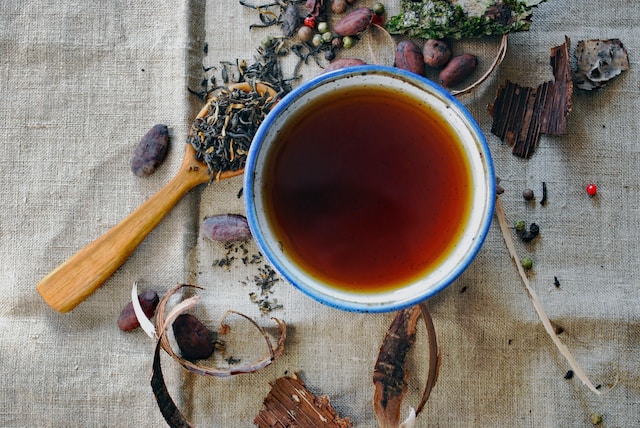Often called a sinus infection, sinusitis is a common ailment that may be quite uncomfortable. It happens when the sinuses, which are the hollow areas behind your eyes, forehead, and cheeks, swell up and get clogged. A runny or stuffy nose, headaches, face discomfort, and nasal congestion are some of the signs and symptoms of sinusitis. Many people find relief from sinusitis symptoms using natural therapies that are simple to use at home, even if medical therapy may be essential in certain cases. To help you breathe more easily and feel well again, let’s highlight a few simple at-home treatments for sinusitis.

Knowledge about Sinusitis
It’s important to understand sinusitis fundamentally before attempting home cures. Acute, chronic, and recurring sinusitis infections are among the several forms of the infection. While chronic sinusitis can remain for longer lengths of time, acute sinusitis usually goes away quickly. Inflammation of the sinus lining results from the disease, which can be brought on by infections, allergies, or other circumstances. This can trap mucus and serve as a haven for germs. This leads to the typical sinusitis symptoms, which include headache, congestion, and pressure in the face.
Inhaling steam

One of the most efficient and rapid ways to alleviate sinusitis symptoms is by steam inhalation. Steam inhalation helps reduce congestion, loosen mucus, and moisturise nasal passages. Here’s how to accomplish it:
– Fill a big dish with boiling water.
– To make a steam tent, lean over the bowl and cover your head with a towel.
– For five to ten minutes, take deep breaths through your nostrils.
– To prevent burns, take care not to approach the hot water too closely.
– Adding a few drops of essential oils like eucalyptus or peppermint can boost the advantages of steam inhalation.
Irrigation of the Nasals
Another efficient home treatment for sinusitis is nasal irrigation, which is frequently done with a saline solution. It relieves congestion and pain by clearing the nasal passageways of mucus and irritants. Here’s how to do nasal irrigation:
– Get a saline nasal spray or make your own by combining two cups of warm, boiling or distilled water with one teaspoon of salt and one-fourth teaspoon of baking soda.
– Use a squeeze bottle meant for nasal irrigation, a neti pot, or a nasal bulb syringe.
– Tilt your head to the side when you lean over a washbasin.
– Let the saline solution enter one nostril and exit the other by gently inserting the device’s spout into that nostril.
– Continue with the other nostril.
Drinking Water
It’s critical to drink enough water to thin mucus and keep it from getting thick and sticky, which can make sinusitis symptoms worse. Rehydrating your mucous membranes with plenty of water, herbal teas, and clear broths is one way to do this. Instead of alcohol and coffee, opting for water will help prevent dehydration.
Warm Compresses
Warm compresses applied to the face can help lower sinus pressure and lessen sinusitis-related facial discomfort. By soaking a clean cloth in warm water and applying it to your face, especially the sinus regions, you may create a warm compress. An alternative is to use a heating pad that you can microwave. Warmth has the ability to reduce discomfort and soothe irritated tissues.
Herbal Treatments

For millennia, people have utilised a few natural treatments to treat sinusitis symptoms:
Echinacea: It is thought that echinacea strengthens the immune system, assisting the body in warding off infections that might lead to sinusitis.
Goldenseal: This herb can help lessen nasal irritation because of its antimicrobial qualities. It comes in a variety of forms, including as teas, tinctures, and capsules.
Ginger: Due to its inherent anti-inflammatory qualities, ginger helps reduce congestion and sinus discomfort. Fresh ginger may be added to meals or used to make ginger tea.
Turmeric: The key ingredient in turmeric, curcumin, has strong antioxidant and anti-inflammatory effects. Turmeric is something you may take as a supplement or eat.
Nutritional Aspects
Managing sinusitis may involve changes in diet. Among the food adjustments and things to think about in order to reduce symptoms are:
Steer clear of dairy products: For some people, dairy can exacerbate congestion by thickening their mucus. To see whether it helps, think about cutting back on or giving up dairy for a while.
Including spicy foods: Foods that are hot and contain components like horseradish or chilli peppers might help reduce congestion and open up the nasal passages.
Increasing vitamin C consumption: Vitamin C is well known for strengthening the immune system. Eating citrus fruits, strawberries, and bell peppers—foods high in vitamin C—may strengthen your body’s defences against illnesses.

Hydration: As was already noted, thinning mucus and avoiding congestion depend on maintaining adequate hydration.
Lifestyle Suggestions
You can better control your sinusitis by making the following lifestyle adjustments in addition to the previously stated remedies:
Humidify your living area: You may keep your nasal passages from drying up by using a humidifier in your bedroom to give moisture to the air.
Steer clear of irritants: Smoke, pungent smells, and other environmental irritants can make sinusitis symptoms worse.
Get enough sleep: Your body needs a restful night’s sleep in order to repair and recover from sinusitis.
Raise your head: Sleeping with your head up can help you breathe easier by reducing sinus congestion and discharge.
You may also like:
Immune System SOS: Identifying the Threats That Make You Vulnerable
Ultra-Processed Foods: The Alarming Truth You Need to Know

